
1. ALCHEMY OF KNOWLEDGE
Sociologist Edgar Morin, an authority on contemporary culture, was invited, in 1999, by UNESCO, to expose his ideas on an interdisciplinary project entitled "Education for a Sustainable Future". Herein, he presented a synthesis of the "Seven Themes" to be tackled in any type of education that takes the new generations at heart.
According to Edgar Morin the seven themes "contribute in the integration of existing disciplines and encourage the development of awareness so that individual, cultural and social challenges can be met". But, what kind of knowledge does man in this new millennium need?
In the twentieth century, "humanistic studies" were regarded as the only pedagogic instrument available to offer the knowledge, values and symbols required to direct and guide human lives. Yet the rich moral, ethic and spiritual elements embodied in the work of Western philosophy, literature and art, alone, do not suffice to stimulate individuals to explore ‘the inner self’ -the basis of Western conscience.
Though the Delphic principle stating, "If you do not know yourself, you will never know God" has been reverberating in the air for millennia, ordinary man still lacks the instruments that enable him to unveil the psyche. Furthermore, the education programmes offered by institutions, which should lead students towards a better understanding of self and of the world, have proven inadequate.
Teaching the understanding of primary values and sentiments as: respect, sympathazing, tolerance and friendship, is not taught by any civil or religious entity, nor by schools or by parents, who often fear being "old-fashioned" and therefore not taken seriously or even misunderstood by their children.
For over four centuries, the delicate problem of education has been confronted with particular focus placed on the "teacher-learner" relationship.
The issue at stake here is not to improve teacher’s pedagogic stature but, rather, it is to improve an individual’s mental capacity. This can be achieved by eliminating filters so that elements of consciousness can emerge from the artistic work of "human culture".
As Morin claimed, to see today’s modern schools help "adolescents", (and not only them), discover personal experiences through the lives of characters in novels or films is a desirable outcome. A person’s aspirations, problems and truths can often be encountered, not only in books outlining ideas, but also, and at times more profoundly, in a poem or a novel."
Knowledge of self and of the world has always been the hub of education. For centuries, it has been passed down, and has accompanied the evolution of individual and collective consciousness. Regrettably, such cognizance cannot arise from the current pedagogical methods. Hence, what needs to be developed are themes of realistic human knowledge; they need not be so abstract, complex or sublime to require that religious, philosophy and psychology experts uncover what has always belonged to the collective consciousness.
Unquestionably, human knowledge can come from artistic language since writers, poets and even film directors translate what is their ‘explored’ perception of love, conflict, integration, laceration, passions, emptiness, involvement and disorientation into ‘images’.
The Alchemy of Knowledge represents the quintessence of humanistic studies. It breaks away from the various language specializations and prompts an understanding of the language of allegories, metaphors and symbols; all elements that reveal the soul’s obscure conflicts or the light of revelation and are fundamental experiences of human duality which, from birth, have developed and transformed an individual’s identity into a universal identity.
Sociologist Edgar Morin, an authority on contemporary culture, was invited, in 1999, by UNESCO, to expose his ideas on an interdisciplinary project entitled "Education for a Sustainable Future". Herein, he presented a synthesis of the "Seven Themes" to be tackled in any type of education that takes the new generations at heart.
According to Edgar Morin the seven themes "contribute in the integration of existing disciplines and encourage the development of awareness so that individual, cultural and social challenges can be met". But, what kind of knowledge does man in this new millennium need?
In the twentieth century, "humanistic studies" were regarded as the only pedagogic instrument available to offer the knowledge, values and symbols required to direct and guide human lives. Yet the rich moral, ethic and spiritual elements embodied in the work of Western philosophy, literature and art, alone, do not suffice to stimulate individuals to explore ‘the inner self’ -the basis of Western conscience.
Though the Delphic principle stating, "If you do not know yourself, you will never know God" has been reverberating in the air for millennia, ordinary man still lacks the instruments that enable him to unveil the psyche. Furthermore, the education programmes offered by institutions, which should lead students towards a better understanding of self and of the world, have proven inadequate.
Teaching the understanding of primary values and sentiments as: respect, sympathazing, tolerance and friendship, is not taught by any civil or religious entity, nor by schools or by parents, who often fear being "old-fashioned" and therefore not taken seriously or even misunderstood by their children.
For over four centuries, the delicate problem of education has been confronted with particular focus placed on the "teacher-learner" relationship.
The issue at stake here is not to improve teacher’s pedagogic stature but, rather, it is to improve an individual’s mental capacity. This can be achieved by eliminating filters so that elements of consciousness can emerge from the artistic work of "human culture".
As Morin claimed, to see today’s modern schools help "adolescents", (and not only them), discover personal experiences through the lives of characters in novels or films is a desirable outcome. A person’s aspirations, problems and truths can often be encountered, not only in books outlining ideas, but also, and at times more profoundly, in a poem or a novel."
Knowledge of self and of the world has always been the hub of education. For centuries, it has been passed down, and has accompanied the evolution of individual and collective consciousness. Regrettably, such cognizance cannot arise from the current pedagogical methods. Hence, what needs to be developed are themes of realistic human knowledge; they need not be so abstract, complex or sublime to require that religious, philosophy and psychology experts uncover what has always belonged to the collective consciousness.
Unquestionably, human knowledge can come from artistic language since writers, poets and even film directors translate what is their ‘explored’ perception of love, conflict, integration, laceration, passions, emptiness, involvement and disorientation into ‘images’.
The Alchemy of Knowledge represents the quintessence of humanistic studies. It breaks away from the various language specializations and prompts an understanding of the language of allegories, metaphors and symbols; all elements that reveal the soul’s obscure conflicts or the light of revelation and are fundamental experiences of human duality which, from birth, have developed and transformed an individual’s identity into a universal identity.
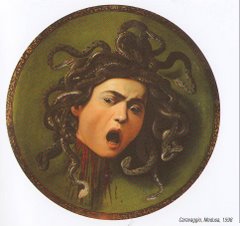
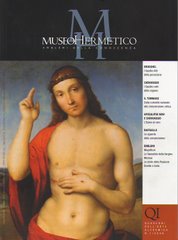

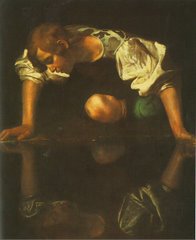
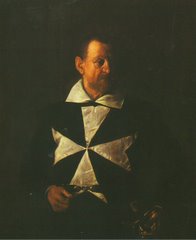
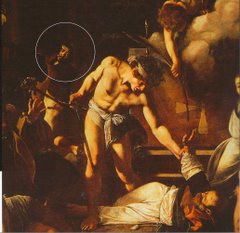
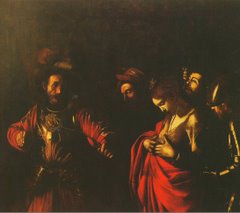



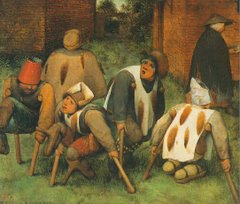
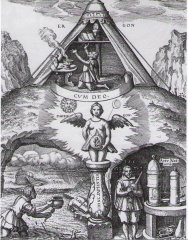

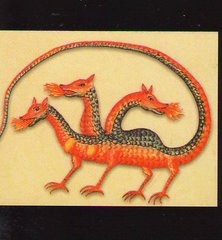
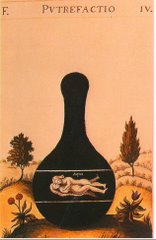

Nessun commento:
Posta un commento